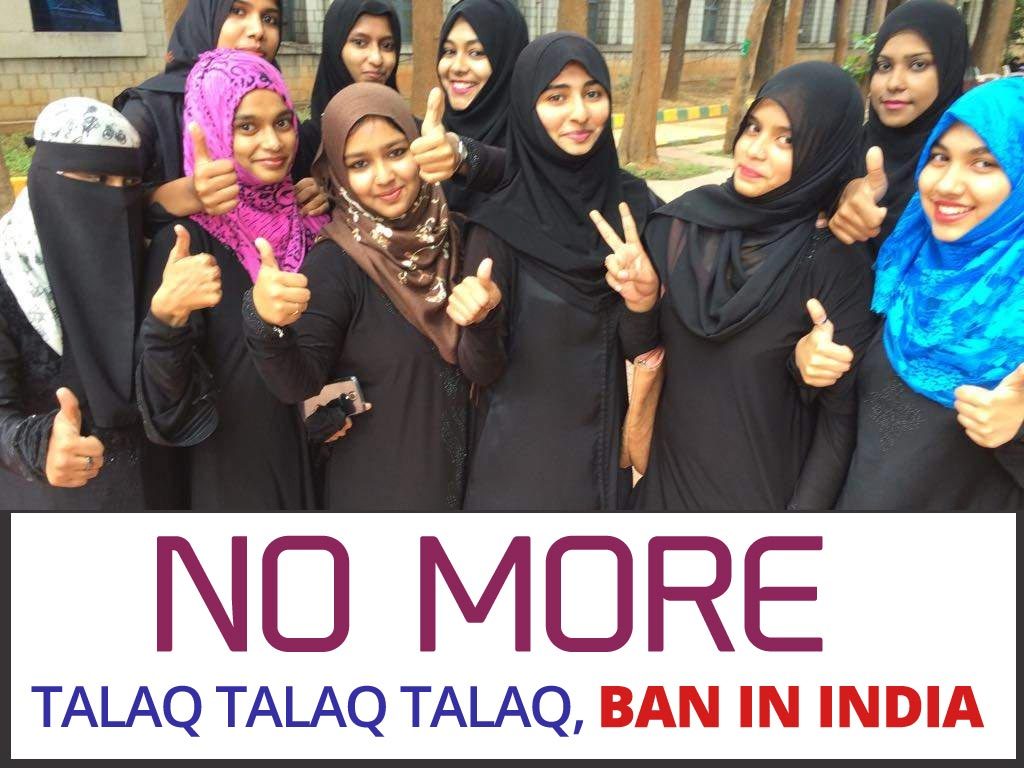Indian historic but politically contentious move, the Modi government used its big majority in the Lok Sabha to pass a bill criminalising triple talaq.
Law Minister Ravi Shankar Prasad hail the passage of the Bill, saying “we are making history today”.
Muslims even as sections of the opposition demand changes in the proposed law and a small minority rejected the legislation.
The proposed law, which makes talaq-e-biddat a “cognizable and non-bailable offence”. This have provisions of “imprisonment for a term which may extend to three years. And fine for any Muslim man who divorces his wife by uttering talaq three times in quick succession.
It also provides for “subsistence allowance” to Muslim women and custody of minor children as “may be determine by the magistrate”.
Opposition parties like the RJD, AIMIM, BJD, IUML and AIADMK objected when the Bill is introduce in the House.
But the Opposition parties did not rally together at the time the Bill was taken up for voting at the end of the discussion.
The Congress did not even give notice to oppose introduction of the Bill and the Trinamool Congress did not participate in the discussion.
AIMIM’s Asaduddin Owaisi, who oppose “vest interests” behind the legislation. He inform it was an attempt to demonise Muslim men. The Bill, he maintained, violated fundamental rights.
Owaisi said while the Bill talks only about Muslim women being abandoned. The government should also worry about “20 lakh abandoned women of all religions, including our bhabhi in Gujarat”.
The only point on which the Opposition show a semblance of unity was in its demand for sending the Bill to a standing committee for wider consultation.
Prasad inform the government views the Bill not through the lens of “siyasat” (politics). but “insaniyat” (humanity). Introducing the Bill, he tell to those who opposing it. “yeh kanoon na kisi puja ka hai, na prarthana ka hai, na ibadat ka hai, na majhab ka hai, yeh kanoon naari nyay, naari garima aur naari samman ka hai”. (this is not a law for any prayer or religion but it is for justice to women, their dignity and respect).
Opposition members ask the government why it was in a hurry to rush the legislation without proper consultation among stakeholders.
Some put question on the government’s intention over criminalizing the practice of triple talaq. While others point it out how a man in jail provide subsistence allowance. Still others get warning of the potential for misuse of the law, saying it could break marriages.
Prasad speak against the Opposition’s objections. He inform the government should come out with the Bill. Since triple talaq continue to be in practice despite being outlaw by the Supreme Court in August. “We expecting that after this judgment, triple talaq cases would come down and situation would improve.
but, about 300 triple talaq cases happen in 2017 and 100 after the Supreme Court’s judgment.
Opposition’s criticism of the criminalisation provision, there was the practical need to provide a redressal mechanism for aggrieved victims of illegal divorces to give effect to the Supreme Court order.
Following the verdict, several women victims of illegal divorces. “Police said they have no powers… Should we ask these women to frame and display the SC order in their rooms?. We want police and courts to give justice to these women,”
He pray to allay apprehensions that the legislation was a veiled attempt to wade into Muslim personal law. “We do not want to interfere in the Sharia. This Bill is on talaq-e-bidda. The issue is not of religion, faith, puja, the issue is of gender justice, equality and dignity… there is no common civil code in this.”
Draft Bill on Tripple Talaq
Though the government draft the Bill after the Supreme Court in a landmark 3-2 verdict on August 22. Set aside the practice of talaq-e-biddat. Three of five judges on the Constitution Bench. Justices Rohinton F Nariman, Uday U Lalit and Kurian Joseph.
But the minority ruling of then Chief Justice of India J S Khehar and Justice S Abdul Nazeer. While underlining the primacy of Muslim personal law. He inform the practice enjoy the constitutional protection. And was beyond the scope of judicial scrutiny. They were of the view that Parliament should consider an “appropriate” law to deal with the issue of talaq-e-biddat.
